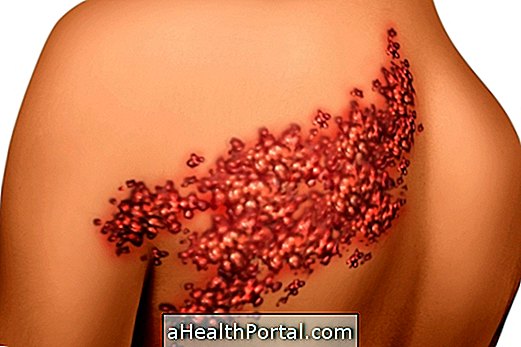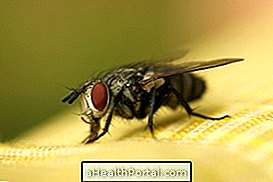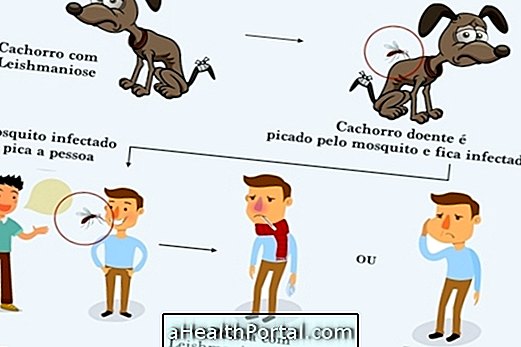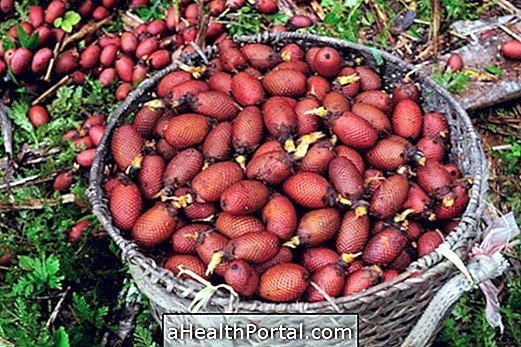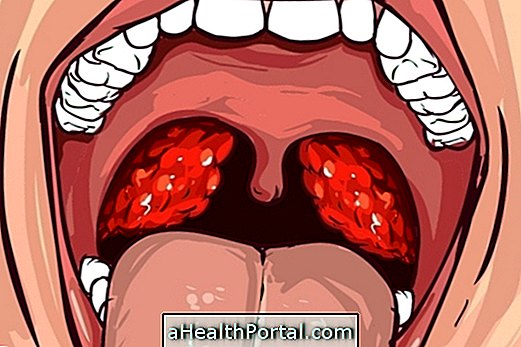Measles symptoms usually disappear after 10 days after the first clinical manifestations appear, it is important that the person remains at home at rest and avoid sharing objects with other people, because a few days after the symptoms disappear it is still possible that the infected person transmits the virus to other people.
It is important that the first dose of the vaccine is taken in early childhood, between 12 and 15 months, and the second between 4 and 6 years of age to prevent the child from being infected by the virus responsible for measles. In addition, measles-related complications are more frequent in people who have an altered (decreased) immune system.

How long do the symptoms last?
Measles symptoms last between 8 and 14 days, however in most people the symptoms usually disappear after 10 days. Four days before the first symptoms of the disease appear until their complete remission, the person can infect others and that is why it is very important that everyone gets the triple-viral vaccine that protects against measles, mumps and rubella.
Generally, from the 4th day of the virus incubation period, blue-white spots appear in the mouth and purplish spots on the skin, initially close to the scalp and progressing from the face to the feet. The spots inside the mouth tend to disappear after 2 days of the appearance of the spots on the skin and these remain for approximately 6 days. Know how to recognize measles symptoms.
Also watch the following video and clarify all your doubts about measles:

Possible complications
During the duration of measles it is recommended to control fever and malaise with antipyretic and analgesic medications, however it is not recommended to take Acetylsalicylic Acid (ASA) based drugs like Aspirin because it increases the risk of bleeding. In case of measles, the use of Paracetamol may be recommended according to the doctor's guidance.
Measles is a self-limited disease that usually does not cause complications, however the disease can progress with:
- Bacterial infections such as pneumonia or otitis media;
- Bruising or spontaneous bleeding, since the amount of platelets can decrease considerably;
- Encephalitis, which is a brain infection;
- Subacute sclerosing panencephalitis, a serious complication of measles that produces brain damage.
These measles complications are more common in people who are malnourished and / or have an impaired immune system.
How to prevent measles
The most effective way to prevent measles is through vaccination. The measles vaccine must be taken in two doses, the first in childhood between 12 and 15 months and the second between 4 and 6 years of age and is available free of charge in Basic Health Units. When vaccinating the person it is protected and there is no risk of contracting the disease.
Adolescents and adults who have not been vaccinated in childhood can take a single dose of the vaccine and be protected. See when and how to get the measles vaccine.
Was this information helpful?
Yes No
Your opinion is important! Write here how we can improve our text:
Any questions? Click here to be answered.
Email in which you want to receive a reply:
Check the confirmation email we sent you.
Your name:
Reason for visit:
--- Choose your reason --- DiseaseLive betterHelp another personGain knowledge
Are you a health professional?
NoMedicalPharmaceuticalsNurseNutritionistBiomedicalPhysiotherapistBeauticianOther
